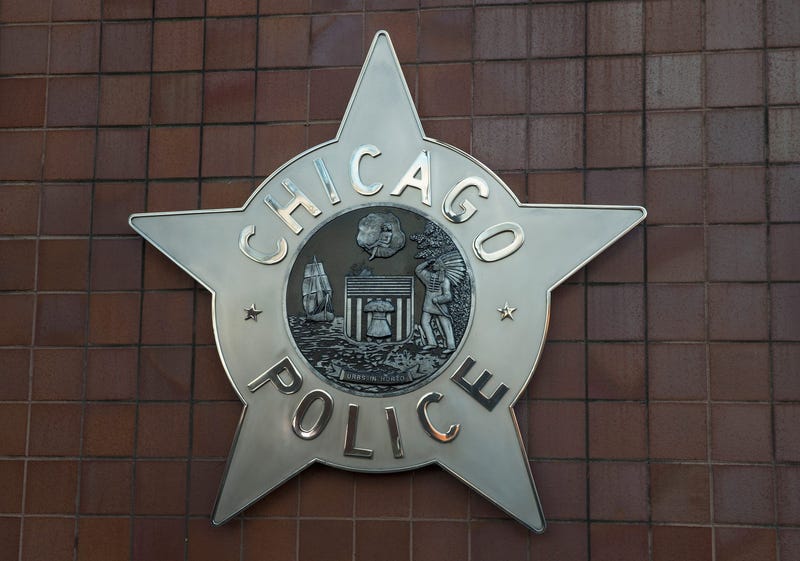
CHICAGO (WBBM NEWSRADIO) -- A first-year report on the Chicago Police Department’s efforts to reform indicates the department has fallen woefully short.
In 2017, the U.S. Justice Department found a pattern and practice of civil rights violations by Chicago police officers. A federal court ordered the city to comply with a consent decree, or reform efforts to make changes in several areas including use of force, community policing, accountability, recruitment and training.
The independent monitor overseeing the federal consent decree issued a new, 459-page report Thursday showing that the city missed over 70 percent of its court-ordered deadlines in the latest reporting period.
Monitor Maggie Hickey’s accounting of the second semiannual reporting period, which was delayed by the COVID-19 pandemic, found that only 22 of the 74 deadlines were met between Sept. 1 of last year and Feb. 29. In the first year of the consent decree, the city has met 35 deadlines and missed 89 others.
Why has CPD failed at meeting these deadlines?
Chicago Police Deputy Superintendent Barbara West told CBS 2 that reform does not happen overnight.
“So you think about how reform takes place, and reform is not going to be done overnight,” West said. “With what I’ve seen in terms of the deadlines being missed, you know, we did make some significant accomplishments in things that we’ve put in place CPD. We’ve hired more mental health physicians, we’ve begun to engage the community in our policy development. We’ve revised our use of force policies, which clearly prohibited chokeholds, and less deadly force is used. So, we’re not doing a slow roll, but we’re doing a concerted effort working with our monitor, working with the OAG [Office of the Illinois Attorney General> and taking a thoughtful approach to how we redevelop our policies, which is the foundation of our reform efforts."
The 459-page report said while CPD continues to have problems engaging in the community. It has made some improvements in areas such as, use of force and crisis intervention.
“The first thing we’re doing, of course, like I mentioned before, is taking a look at our use of force policies. And when something happens around the country we always go back and make sure that we are in stuff with what’s best practice, and how we can make improvements in our policies and our training,” West said. “So those are the things that we do when we’re seeing what’s going around in the country today.”
What can CPD do to rebuild and establish trust with the community?
“Again, again bringing in our community and engaging them in a different way that we’ve never done before, in terms of our actual policy development,” West said. “So, through the use of force working group, you know, that the community will be part of that group, and will help us bring recommendations on how to improve our policy policies, as well as our training. So, continue to engage with our community, making sure that they are part of the collaboration when we try to reform our department.”
RELATED: 'We Hear You': Lightfoot, CPD Announce Use Of Force Community Working Group
The federal consent decree was prompted by the killing of Laquan McDonald. In a statement, Hickey referenced the current unrest spurred by the officer-involed killing of George Floyd in Minneapolis and said she hopes “the current momentum” pushes the city and the CPD to “accelerate its efforts.”
“This is a critical time in history and for law enforcement,” said Independent Monitor Hickey. “The recent grief, outrage, protest, and unrest spurred by the tragic death of George Floyd demonstrate the urgent need for police reform across the country and here in Chicago.”
RELATED: CPD Issues Guidance To Officers Following Death Of George Floyd In Minneapolis
In a joint statement, Mayor Lori Lightfoot and Chicago Police Superintendent David Brown acknowledged that the new report “illustrates how the level of transformational change and reform that we are working towards cannot be achieved overnight.
“This road toward a more transparent, accountable and professional police force began more than four years ago with the Police Accountability Task Force following the murder of Laquan McDonald by Chicago Police Officer Jason Van Dyke,” Lightfoot and Brown said. “While we have continued to build on a host of police reform and accountability measures since then, we have been clear that this moment is just the start, not the end of our journey.
“We can do better, and we are redoubling our efforts to meet important milestones mandated by the consent decree.”
Mayor Lightfoot and Supt. Brown said they look forward to sustaining the ongoing partnership alongside the Independent Monitoring Team, the Office of Illinois Attorney General, as well as with community partners to implement the kind of meaningful change needed to make CPD a better department for all of Chicago.
